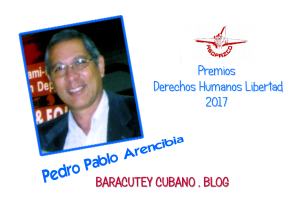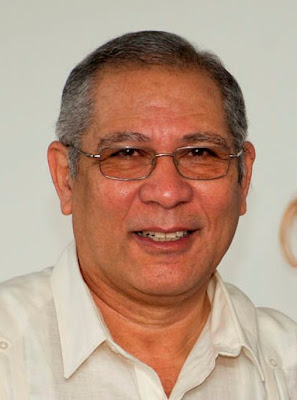WSJ. Mary Anastasia O’Grady: Putin Restores a Cuban Beachhead. Vladimir Putin restaura una cabeza de playa cubana. Cuba, “cabeza de playa” para Putin
Mary Anastasia O’Grady*
O’Grady@wsj.com
*Mary Anastasia O’Grady es editorialista de The Wall Street Journal y editora la columna “Américas” que se publica todos los viernes en el Wall Street Journal y se refiere a temas de política, economía y negocios en América Latina y Canadá. Es graduada del Assumption College y MBA de Pace University. En 1997, O’Grady fue premiada por la Sociedad Interamericana de Prensa por sus editoriales y en 1999 recibió una mención de honor en la categoría de premios de opinión, también de la SIP.
*************
El diario Wall Street Journal considera alarmante la presencia del gobernante ruso en América Latina. Los hermanos Castros “sigue siendo paranoicos y sedientos de poder”, ponen la isla a disposición de “gobiernos criminales, como Irán y Corea del Norte” para hacer negocios, dice Mary Anastasia O’Grady
 “su crueldad y
habilidad para consolidar el poder económico y político”.
“su crueldad y
habilidad para consolidar el poder económico y político”.Putin Restores a Cuban Beachhead
******
The Kremlin and the Castros are chummy again, and Moscow is offering military aid.
******
By Mary Anastasia O’Grady
 Cuban spy Ana Belen Montes was the highest-ranking Pentagon intelligence analyst ever to be busted for working for the Castros. What's also notable, in light of Vladimir Putin's visit to Havana earlier this month, is that she was nabbed in 2001, long after the Cold War ended.
Cuban spy Ana Belen Montes was the highest-ranking Pentagon intelligence analyst ever to be busted for working for the Castros. What's also notable, in light of Vladimir Putin's visit to Havana earlier this month, is that she was nabbed in 2001, long after the Cold War ended.Besides leaking classified material and blowing the cover of covert U.S. intelligence agents, Montes seems to have been charged by her handlers with convincing top brass in Washington that Fidel Castro —who had wanted the Soviets to drop the bomb on this country during the 1962 missile crisis—no longer presents a threat to the U.S. Montes, who rose to become the U.S. military's resident intelligence expert on Cuba, partly accomplished that mission. The Pentagon's 1998 Cuba threat assessment played down its military and intelligence capabilities.
The best Cuba watchers were less sanguine. The Castros remain as paranoid, power-hungry and pathological as ever. They may be economic fools, but they run a good business making the island available to criminal governments, like Iran and North Korea.
Mr. Putin's Cuba trip reinforces the point. The old Cold War villains are up to no good one more time.
Russia's president is trying to rebuild the Soviet empire. Eastern Europe won't cooperate and in Asia the best he will ever be is China's junior partner. But in Latin America Mr. Putin's KGB résumé and
 willingness to stick his thumb in the eye of the U.S. gives him traction. Colonizing Cuba again is an obvious move.
willingness to stick his thumb in the eye of the U.S. gives him traction. Colonizing Cuba again is an obvious move. After the Soviet Union fell in 1991 and the gravy train to Havana was cut off, Fidel was furious with the Kremlin. It hasn't been easy to get back in his good graces. In 2008 the Moscow news outlet Kommersant reported that Putin friend and Deputy Prime Minister Igor Sechin got the cold shoulder when he visited the island to work on "restoring full-scale cooperation." Kommersant reported that the Castros were "displeased" that Russia had been talking up a military deployment to Cuba without Havana's approval.
But it seems that the world's most notorious moochers are willing to forgive—for the right price. With sugar-daddy Venezuela running into economic problems in recent years and Mr. Putin itching for a place in the Caribbean sun, Cuba has decided to deal.
In February 2013 Russian Prime Minister Dmitry Medvedev traveled to Cuba, where he signed agreements to lease eight Russian jets worth $650 million to Havana and proposed some $30 billion in debt forgiveness. Two months later, Russian Chief of Staff Gen. Valery Gerasimov visited key military and intelligence sites on the island. In August a spokesman for the Black Sea Fleet announced that the Russian guided-missile warship Moskva, the fleet's flagship, had set off for Cuba and other ports in Central and South America.
Fast forward to February of this year. Russian Defense Minister Sergei Shoigu announced that Russia had engaged in talks to establish military bases in Venezuela, Nicaragua and Cuba. The next day a Russian intelligence-gathering ship docked in Havana.
In May, Russia's Security Council and Cuba's Commission for National Security and Defense agreed in Moscow to form a joint working group. "The situation in the world is changing fast and it is dynamic. That's why we need the ability to react promptly," Nikolai Patrushev, secretary of the Russian Security Council, told the press. Cuban Col. Alejandro Castro Espin, son of Raúl Castro, led the Cuban delegation. In June Russia signed a space cooperation agreement with Cuba to allow it to use the island to base its Glonass (Russia's alternative to GPS) navigation stations.
When he called in Havana this month Mr. Putin flaunted his intentions to restore a Russian beachhead in Cuba. The shootdown of the Malaysia Airlines 3786.KU -2.22%flight on the same day that he ended his Latin American tour raised the visibility of a trip that was made for both psychological and strategic reasons. Mr. Putin wants to assure the Free World that he can be a menace in the U.S. backyard—and he wants a local foothold to make the threat real.
Mr. Putin officially wrote off $32 billion of bad Cuban debt on his trip, leaving just $3.2 billion due over the next 10 years. Russia is looking for oil in Cuban waters, and Mr. Putin signed new agreements in energy, industry and trade with Castro. Days after the visit he denied rumors that the Kremlin intends to reopen its old electronic-eavesdropping facility on the island.
That's cold comfort, even if you believe him. Satellite technology has made land-based listening posts obsolete in many ways. Far more troubling is the emergence of Mr. Putin as a Latin American presence. Tyrants all over the region, starting with the Castros, admire his ruthlessness and skill in consolidating economic and political power. They want to emulate him. It's a role model the region could do without.
Write to O'Grady@wsj.com











0 Comments:
Publicar un comentario
<< Home